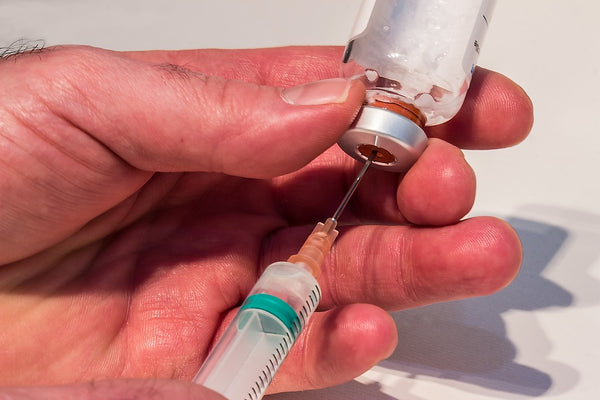
How to Stop Internal Bleeding?
Share

One of the prominent causes of mortality among trauma-related incidents involving patients aged five to 45 years old around the world is extreme blood loss due to hemorrhaging. Commonly known as internal bleeding, hemorrhaging occurs when blood vessels are damaged due to multitudes of factors ranging from physical traumas, pregnancy, pathological diseases like cancer, and medications to alcohol and substance abuse. It may happen anywhere inside the body – in the tissues, organs, and cavities like the spinal canal, cranium, abdomen, and chest. Persons who suffer from internal bleeding don’t observe any signs and symptom instantly until the blood exits the body through body openings such as the mouth and the nose. It may also manifest during bowel movements or urinating. Sometimes it may also cause pain and inflammation, or when too much bleeding takes place, it will lead to shock. Other indicators of internal bleeding are weakness, extreme thirst, confusion, nausea, vomiting, pale and sweaty skin, shortness of breath, and fainting.
Usually, internal bleeding is a warning sign of an underlying serious illness within the body. When left untreated, severe and on-going hemorrhaging would progress into organ failure, seizures, coma, and other fatal conditions leading to death. Therefore it is perceived as an invasive, and most of the time life-threatening medical condition, which needs to be attended by healthcare professionals. Patients who experience unusual blood loss without any history of injury must seek medical assistance right away. Physicians will diagnose internal bleeding through an in-depth physical evaluation, prescribing different laboratory examinations and imaging tests to determine its location, severity and affected structures and physical functions.
Treatment of internal bleeding relies on its origin - where the bleeding occurs, and causes - what induced the damages. There are a number of remediation options given to patients suffering from internal blood loss to avoid worse cases and further damages. Minor hemorrhages generally go away on its own with proper rest and hydration, as the blood vessels repair itself and clot will develop, completely stopping the blood loss although instances of moderate to chronic internal bleeding are treated via thorough examination and special medications given by healthcare providers.
In this article, we listed three ways to stop internal bleeding and to prevent further danger that could ultimately save lives.
Surgery
Typically, patients are put into a period of observation when the bleeding is at a slower rate or delayed. However, when the blood loss is continuous and in large amounts, doctors will require surgical procedures to stop the bleeding.

There are different types of surgery done to correct damages brought by internal bleeding that depends on the location of the damaged artery or veins. Here are some:
- Craniotomy – This is a type of head surgery, wherein a section of the skull known as the bone flap is temporarily removed to access the brain and cure it from any diseases. The part of the skull will then be put back after the surgery. In cases of internal bleeding in the head due to concussions, fractures or tumors, a craniotomy is performed to ease the brain from too much pressure and harm due to excessive bleeding.
- Exploratory Laparotomy – This is done to examine the abdomen and to check for any abnormalities or injuries. When the patient undergoes exploratory laparotomy to cure internal bleeding, surgeons will use specialized tools to seal impaired and leaking blood vessels by suturing or using devices such as a heat probe or application of hemostatic clips to halt the bleeding.
- Thoracotomy – This is a type of surgical treatment given to patients who have bleeding in the thoracic area or the rib cage encasing the heart and the lungs. Through this procedure, surgeon gain access to the bleeding organ and treats it to prevent any pressure build-up and blood displacement that would lead to further problems in the heart or lungs.
- Fasciotomy - This is a surgical method done to relieve the patient from pain due to high pressure caused by severe internal bleeding within the thigh area. It is a limb-saving procedure to correct the blood flow within the fascia.
Non-surgical Medications
Medications are typically given to patients after surgery that will act as additional treatments to support healing. However, there are some health risks that might cause doctors to cease internal bleeding without using surgical procedures. Nevertheless, these medications include a change in lifestyle, like quitting cigarette smoking or drinking alcohol. Further physiological therapies and interventions to patients for complete recovery and prevention of aggravated hemorrhaging.
Intravenous fluids and electrolytes are one of the first aid treatments provided to people experiencing severe blood loss to stabilize their blood pressure before undergoing a blood transfusion. Antibiotics for abdominal bleedings are prescribed to inhibit the growth of infections.

For those that have genetic blood conditions like Hemophilia and Factor XIII Deficiency, treating continuous and abnormal episodes of blood loss is mainly done through vein infusions that helps improve the patient’s blood activity particularly clotting.
Antifibrinolytic drugs are given to patients that suffer from hyperfibrinolysis and menorrhagia or heavy menstrual bleeding, this medicine stimulates blood clotting by sustaining clots to its solidified form and prevent the formation of plasmin that inhibits blood from clotting. Moreover, antifibrinolytic drugs such as aprotinin, aminomethylbenzoic acid, epsilon-aminocaproic acid and tranexamic acid (TXA) are given to seriously injured patients to stop bleeding and even to people who are undergoing surgery. This medication is proven to save lives during circumstances of severe blood loss.
Organic and Herbal Medicines
Most people experiencing ailments have the tendency of neglecting and not trying to seek out professional assistance due to a number of reasons such as financial instability, lack of health insurance, and fear of undergoing medical procedures. Fortunately, the increase in finding alternative and innovative methods, like therapeutic herbal remediation that are proven safe and effective have continuously given the cure to a lot of common and unfamiliar diseases.
Organic alternatives such as styptic herbs that act as natural remedy to stop bleeding like birthroot, yarrow, and wild geranium that are usually consumed as tea concoctions and believed to have healing effects in conditions of excessive bleeding due to menopause, hemorrhoids, and gastrointestinal diseases.
One of the most recognized hemostatic and anti-hemorrhagic medicine is Yunnan Baiyao, literally means White Medicine of Yunnan. This century-old Chinese herbal medicine has successfully established its reputation to cure mild to chronic bleeding among humans and animals. Its efficacy was first discovered and used in 1902 by a Chinese physician Qu Huangzhang, while on a medicinal exploration in the province of Yunnan. It is initially utilized as a powder, which is applied topically to wounds or consumed to stop internal hemorraghing and to promote fast recovery.
Presently, Yunnan Baiyao products went through several improvements and now sold to customers in many variants – from oral capsules, analgesic skin plasters, adhesive band-aids, dietary supplements, pain relieving sprays, and a variety of forms that offer immediate and long-lasting relief because of internal bleeding. These products can be conveniently purchased by means of trusted and accredited online shops that sells original Yunnan Baiyao items.
Internal bleeding or any other kinds of unusual blood loss in our system is indeed frightening. We must always be wary of these conditions and seek necessary treatments from licensed practitioners and healthcare providers as soon as signs and symptom occur. Our health is a significant aspect of our progress. Thus, preventing diseases and being aware of health-related issues through reading and seeking information are very helpful.
